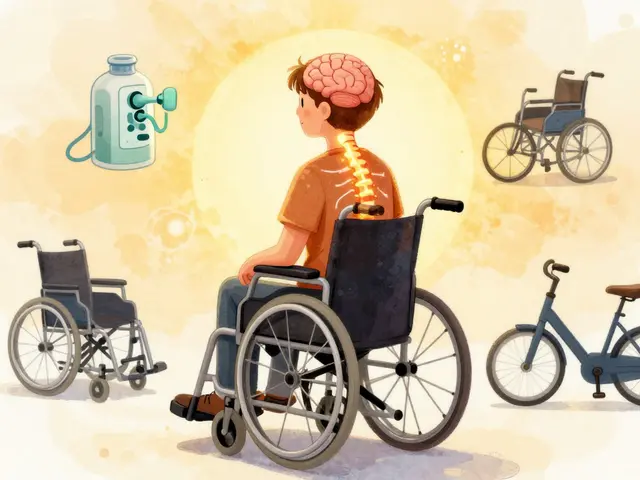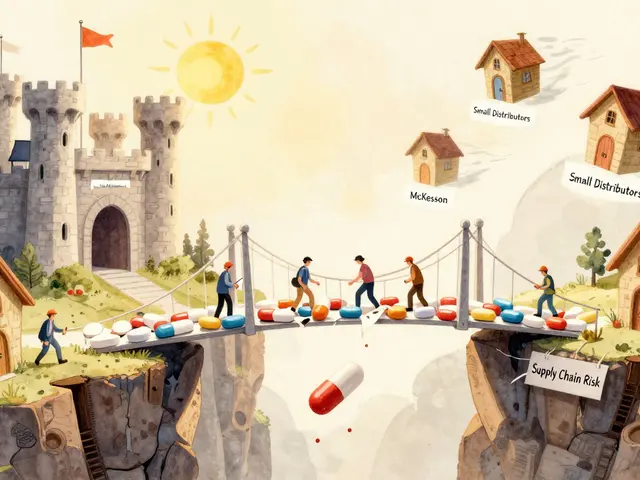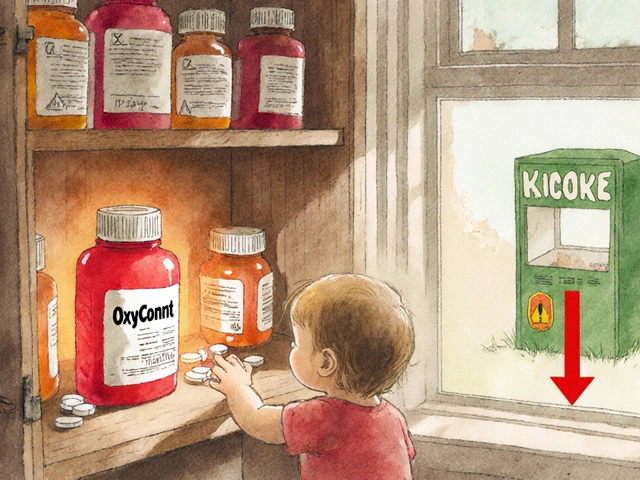Dementia treatment: practical options, meds, and daily strategies
There’s no pill that reverses most dementias. That may sound blunt, but it sets a clear goal: slow decline, manage symptoms, and keep life as normal as possible. If you or a loved one just got a dementia diagnosis, small, focused steps matter more than big promises.
Medical treatments that doctors use
Doctors commonly use two drug groups. Cholinesterase inhibitors — donepezil, rivastigmine, and galantamine — help memory and thinking in mild to moderate Alzheimer’s for months to years. They can cause nausea, diarrhea, or slow heart rate, so start low and monitor. Memantine works for moderate to severe stages and can be combined with a cholinesterase inhibitor. Expect modest benefits; these meds often ease daily tasks rather than restore lost abilities.
Watch for side effects and drug interactions. Older adults can develop low sodium (hyponatremia) from some meds or lose balance on sedatives. Benzodiazepines like Ativan raise fall risk and confusion in people with dementia — ask your clinician before using them. Regular medication reviews with a pharmacist help reduce risky combinations.
Non-drug approaches that really help
Simple routines stabilize daily life. Set consistent wake, meal, and sleep times. Label cupboards, place calendars and clocks where they’re visible, and keep commonly used items within reach. These small changes cut confusion and frustration.
Physical activity slows decline and lifts mood. Aim for safe, regular walks, chair exercises, or group classes. Hearing and vision checks matter — untreated sensory loss worsens cognitive symptoms. Treating sleep apnea, managing pain, and controlling blood pressure and blood sugar protect the brain long term.
Cognitive stimulation — puzzles, music, reading aloud, or memory groups — supports function and can improve social mood. Tailor activities to past interests: a former gardener may respond well to sorting seeds or looking through plant photos.
Caregiver routines and safety tips are part of treatment. Use one-step directions, keep calm during bad days, and remove trip hazards. Break tasks into small parts and praise effort. For medication, use a pill box and set alarms; simpler regimens reduce missed doses and dangerous double-dosing.
Think about future needs early. Discuss driving, finances, and care wishes while the person can still take part. Ask your doctor about memory clinics, geriatricians, or neurologists if symptoms progress quickly. Clinical trials can give access to new treatments — ask your clinic if any are suitable.
Questions to bring to visits: What benefits should I expect from this medicine? Which side effects need urgent care? How often should we check sodium, heart rate, or drug interactions? Who can help with home safety and caregiver support? Clear answers make decisions easier and treatment more effective.
Every person with dementia is different. Mix safe medications, daily routines, activity, and careful monitoring to keep quality of life as high as possible. Small, steady changes often give the biggest, lasting gains.
4
Reminyl: How Galantamine Is Changing Dementia Treatment in 2025
Reminyl (galantamine) is making waves in dementia care. This deep dive covers how it works, who it's for, side effects, and practical tips to help you or loved ones.
Latest Posts
Popular Posts
-
 Meniere’s Diet: How Sodium Restriction and Fluid Balance Reduce Vertigo and Hearing Loss
Meniere’s Diet: How Sodium Restriction and Fluid Balance Reduce Vertigo and Hearing Loss
-
 Spinal Cord Injury: Understanding Function Loss, Rehabilitation, and Assistive Devices
Spinal Cord Injury: Understanding Function Loss, Rehabilitation, and Assistive Devices
-
 Extended Use Dates: How the FDA Extends Drug Expiration Dates During Shortages
Extended Use Dates: How the FDA Extends Drug Expiration Dates During Shortages
-
 Stinging Insect Allergy: What Venom Immunotherapy Really Does for You
Stinging Insect Allergy: What Venom Immunotherapy Really Does for You
-
 Enteral Feeding Tube Medication Safety: Compatibility and Flushing Protocols Explained
Enteral Feeding Tube Medication Safety: Compatibility and Flushing Protocols Explained



